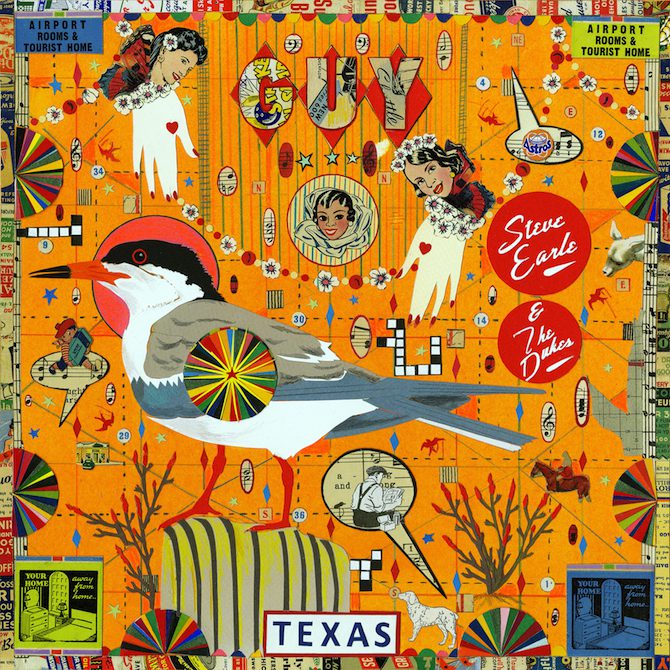Steve Earle’s ‘Guy’ Stands as Loving Tribute to the Man and His Music

There’s a moment of raw beauty on Steve Earle & The Dukes’ Guy that is in some ways the centerpiece of the entire album: Earle’s take on the talking blues “The Randall Knife” captures the purity of regret, ache, desire, as well as the intimate, often unexpressed, connections between father and son. The poetic brilliance of the song grows out of its sparse dialogue between lyrics and acoustic guitar, enhanced on Earle’s version by the aching strains of Ricky Ray Jackson’s pedal steel.
Coming 10 years after Townes, his award-winning tribute to Townes Van Zandt, Guy pays tribute to Earle’s other songwriting mentor, Guy Clark. Like “The Randall Knife,” other songs on the album play it close to Clark’s original version. “Heartbroke” dances across the Texas dance hall floor, fueled by Jackson’s dancing steel and Eleanor Whitmore’s jaunty, scampering fiddle. Whitmore’s fiddle kicks off “Desperados Waiting for a Train,” a song on which Earle sang backing vocals on Clark’s Old No. 1. Earle captures the raggedness of love and the loneliness of being left behind by the damned ravages of time, while at the same time honoring the depths of a friendship that cuts across the years. In some ways, this is a perfect song, with its desperation, its confirmation that we’re all waiting for some vehicle to take us someplace far away, and its tribute to a lifelong relationship that cuts across barriers. Whitmore’s harmony vocals elevate “She Ain’t Going Nowhere” and capture the ironic poignant nature of the song. A gathering of Clark’s and Earle’s “old friends” join Earle & The Dukes on the closing track “Old Friends.” Shawn Camp adds mandolin, Verlon Thompson and Gary Nicholson join on guitar, Mickey Raphael adds harmonica, and Jim McGuire plays dobro, while Terry Allen, Jerry Jeff Walker, Emmylou Harris, Rodney Crowell, and Jo Harvey Allen join on vocals, with Walker, Harris, and Crowell each taking a verse or part of a verse.
Guy pays fitting tribute Clark’s brilliant songwriting, revealing Earle to be a masterful musician himself, allowing Clark’s songs to breathe and live with a spirit that honors Clark and his music. Earle reanimates his mentor and friend, introducing Clark’s vision and genius to listeners who may be unacquainted with Clark, who died in 2016, while making those well-acquainted with him miss him all the more.




